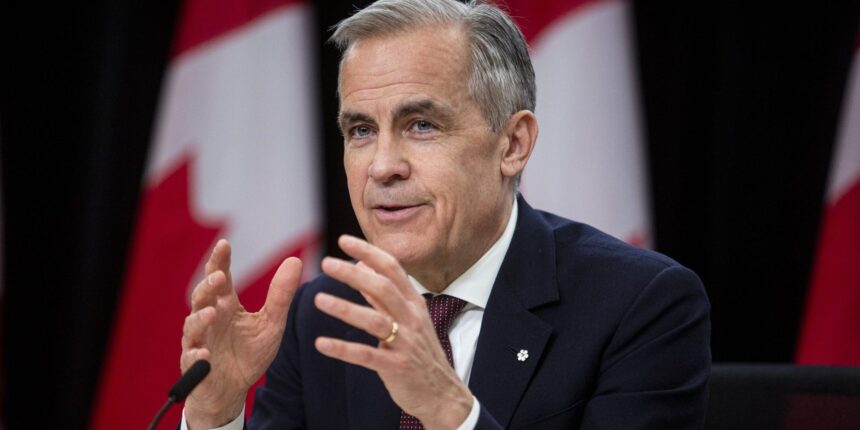Article – The final months of any government’s mandate often inspire a rush to demonstrate fiscal commitment, but according to the latest Auditor General’s report, this tendency has reached concerning levels.
Released yesterday, Auditor General Karen Hogan’s comprehensive review of federal spending patterns reveals that $13.2 billion in approved expenditures remain unaccounted for across six major departments since January. The findings suggest a troubling pattern of what some observers call “use-it-or-lose-it” spending ahead of the anticipated fall election.
“We’ve identified significant control weaknesses in how departments track and report their spending,” Hogan told reporters at the report release in Ottawa. “When billions of dollars move without proper documentation, Canadians deserve better accountability.”
The most substantial discrepancies appeared in Infrastructure Canada, where $4.8 billion in transfers to provinces showed incomplete documentation on whether projects met federal objectives or value-for-money requirements. Similar gaps were found in Indigenous Services Canada, Transport Canada, and Employment and Social Development.
This report arrives as Parliament prepares to break for summer recess, with opposition parties already framing it as evidence of pre-election financial mismanagement. Conservative finance critic Jasraj Singh Hallan didn’t mince words when addressing the House yesterday.
“This government treats taxpayer dollars like campaign funds,” Hallan said during Question Period. “How can Canadians trust a government that can’t explain where billions of their hard-earned money has gone?”
Finance Minister Chrystia Freeland defended the government’s fiscal record, noting that accelerated spending reflects efforts to address housing, healthcare, and infrastructure needs that Canadians have identified as priorities.
“Our government invests in Canadians’ priorities with strong oversight,” Freeland responded. “The timing of expenditures reflects project readiness, not political calculation.”
The report doesn’t allege fraud or misappropriation but highlights systematic weaknesses in documentation, oversight, and reporting. According to political scientist Emmett Macfarlane at the University of Waterloo, this pattern has implications beyond accounting practices.
“When spending accelerates without corresponding oversight, we see two problems,” Macfarlane explained in a phone interview. “First, taxpayers can’t verify value for money. Second, it undermines public trust in government institutions—something already in short supply.”
The timing isn’t coincidental. Analysis from the Parliamentary Budget Office shows that federal spending typically increases by 11-14% in the final year before an election. This cycle appears to be exceeding those norms, with a 17% increase in the last quarter alone.
In communities receiving federal funding, the effects are tangible but complex. In Thunder Bay, where $42 million in federal infrastructure money arrived last month for port modernization, Mayor Bill Mauro welcomes the investment while acknowledging the timing.
“We’ve been requesting this funding for over three years,” Mauro said. “We’re grateful it’s finally approved, though one wonders why now and not sooner.”
The Auditor General’s report makes seven recommendations for improving financial controls, including quarterly reporting on unspent allocations, standardized documentation requirements, and enhanced ministerial oversight for projects exceeding $25 million.
The government has accepted all recommendations in principle, with Treasury Board President Anita Anand promising implementation plans within 90 days. However, with Parliament likely to dissolve before that deadline if fall election speculation proves accurate, accountability for these changes remains uncertain.
For everyday Canadians, the findings highlight the gap between announcement and implementation that often characterizes federal spending. Last month’s housing affordability package, which promised $15 billion in new construction incentives, contains similar accountability concerns according to housing policy expert Steve Pomeroy.
“We’ve seen a pattern of big announcements followed by slow, sometimes incomplete implementation,” Pomeroy noted. “The challenge isn’t just approving money, but ensuring it creates the promised outcomes.”
Some observers see larger democratic implications. Former Parliamentary Budget Officer Kevin Page, now with the Institute of Fiscal Studies and Democracy, believes the spending pattern reflects structural weaknesses in our system.
“When parliamentarians can’t follow the money, they can’t fulfill their oversight role,” Page said. “This isn’t just about accounting—it’s about whether our democracy can effectively monitor how public resources are used.”
As MPs return to their ridings for the summer, many bringing news of fresh federal investments, the question remains whether voters will view these announcements as needed investment or pre-election opportunism.
The Auditor General’s office plans follow-up assessments in October—timing that ensures these questions of fiscal management will remain front and center as Canadians potentially head to the polls.






